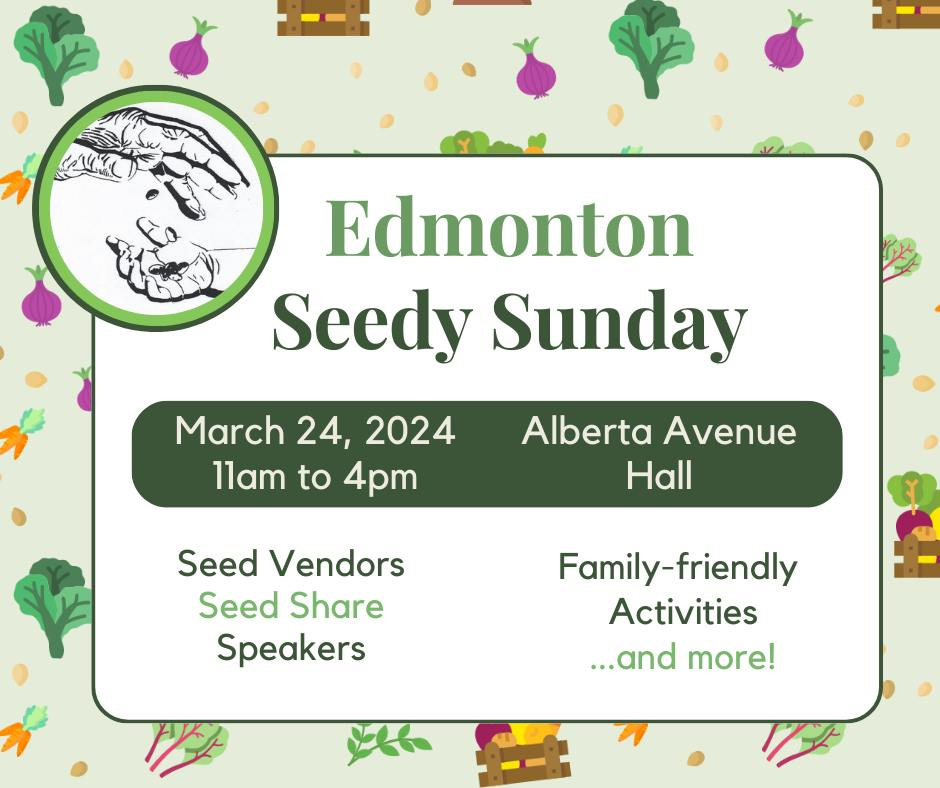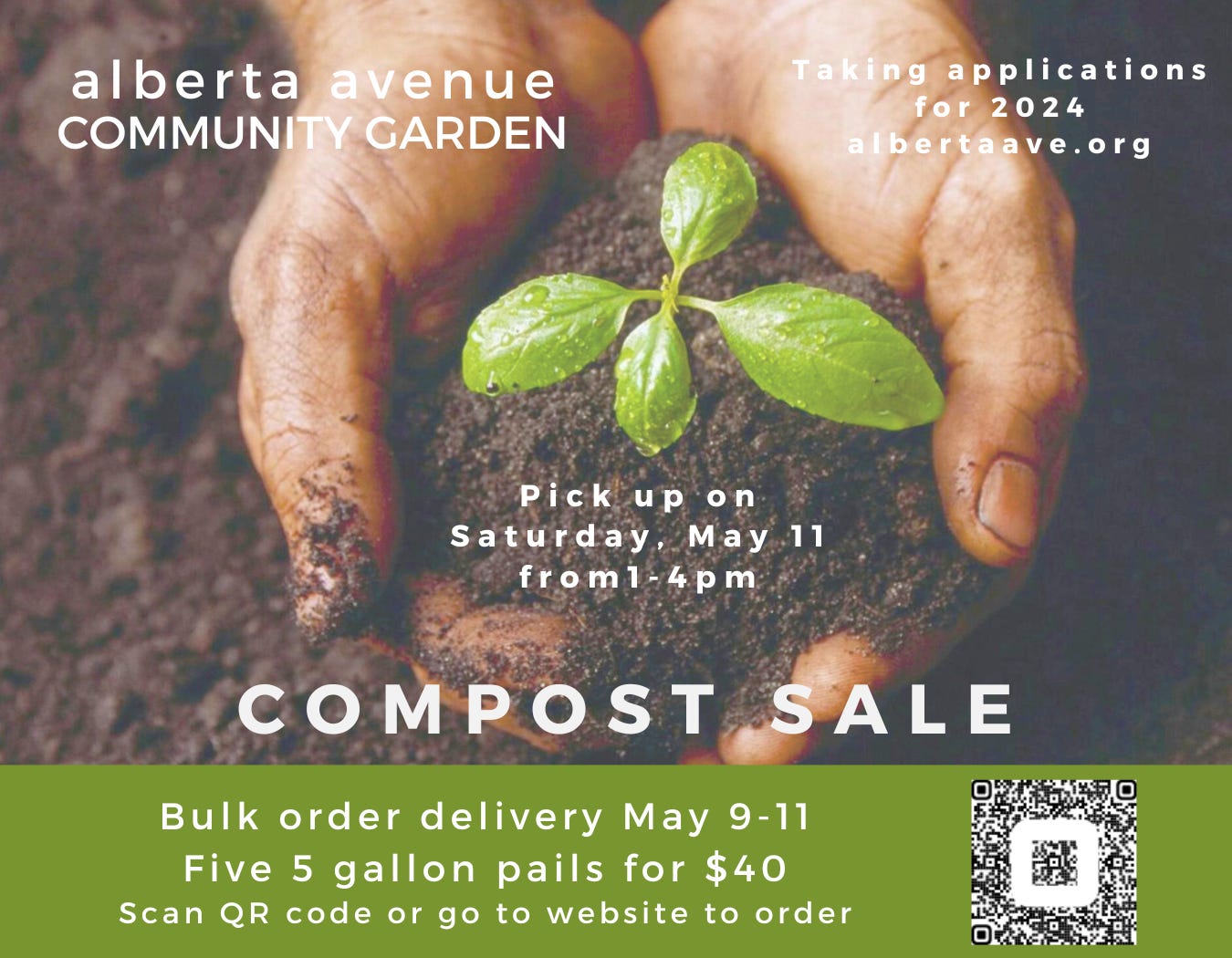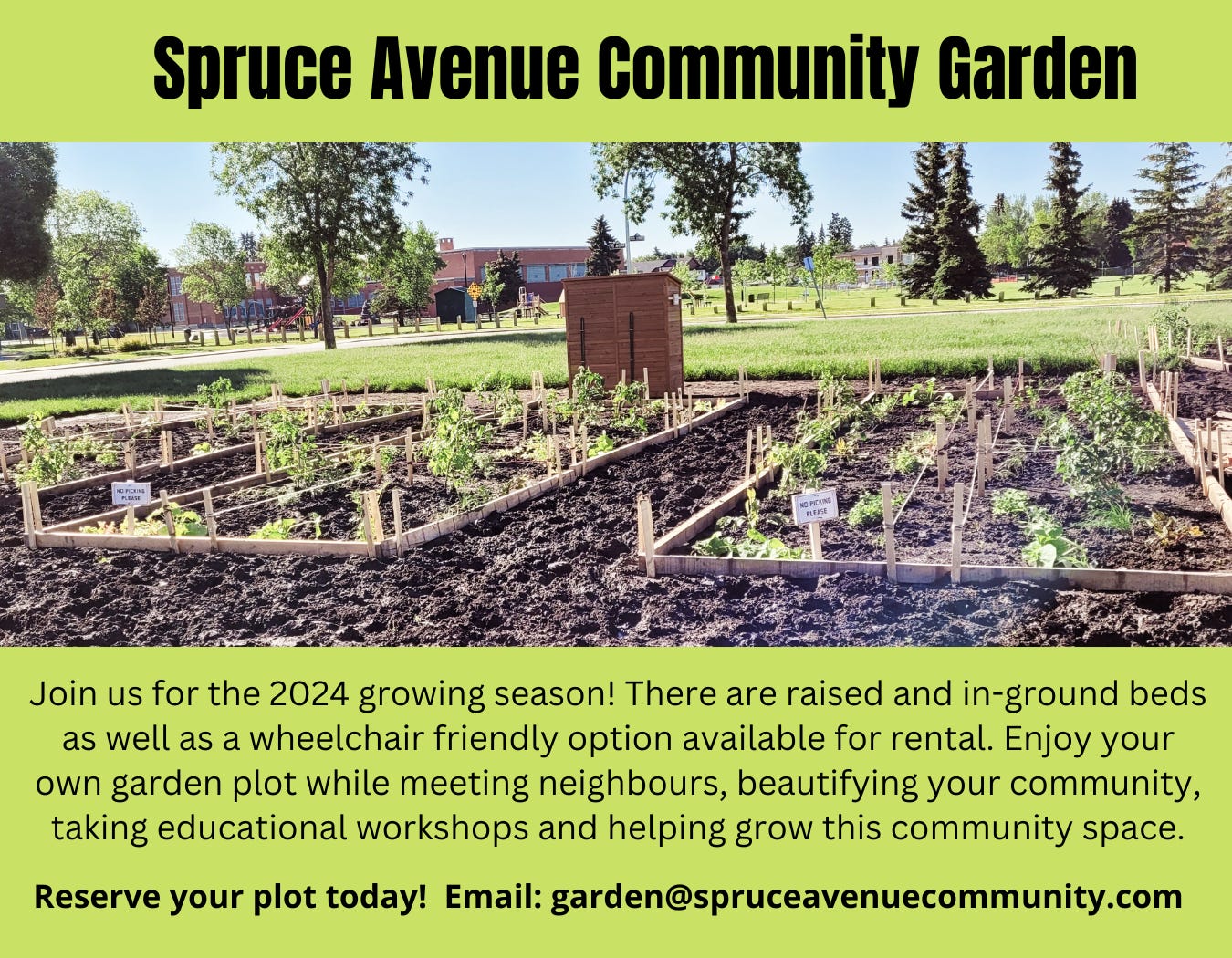BY CHELSEA BOOS
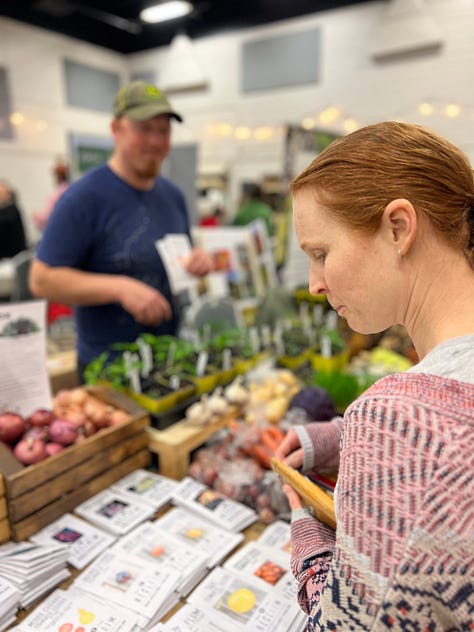
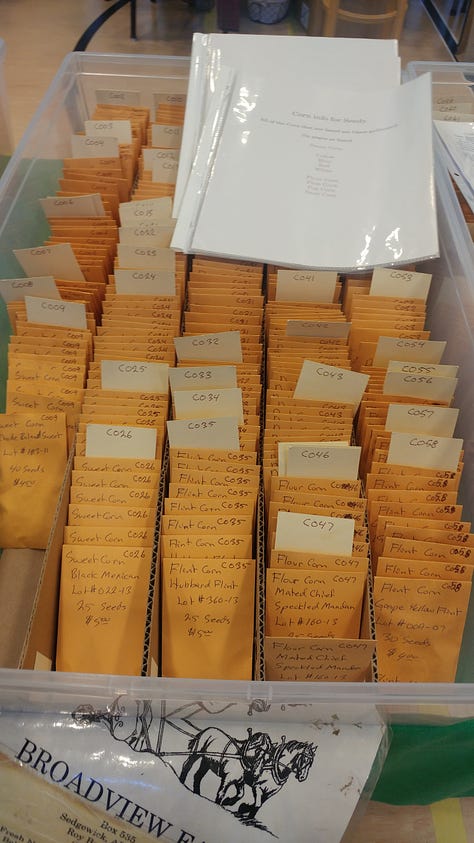
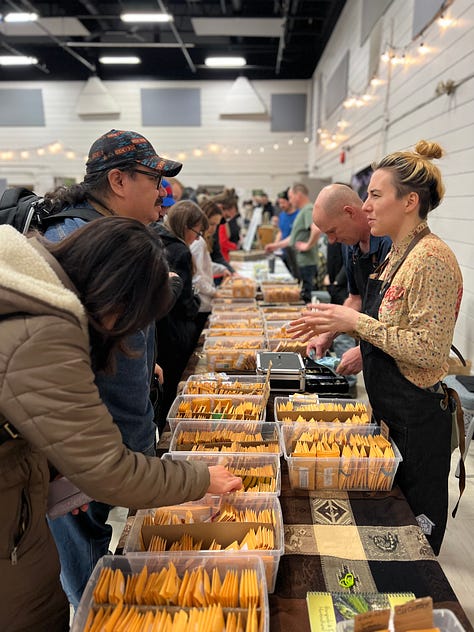
Seedy Saturday and Seedy Sunday seed swap events spread to this land in the 1990s after originating in Vancouver and have been popping up like fungi ever since, sometimes going online when necessary. The current collective of local organizers has doubled since it started as a group of four women behind the scenes in 2007. Seventeen years on, over 40 volunteers are involved in the annual event called Seedy Sunday, happening this year on March 24 from 11 am to 4 pm at Alberta Avenue Community Hall.
I talked to Suzanne Cook about her Vendor Coordinator role on an overcast February day, when the thought of spring felt like a distant mirage. She has been gardening passionately for over 50 years. Luckily, she will be giving a presentation (including book recommendations) where everyone can learn about seed saving at 12:30 pm. Cook will share highly knowledgeable advice from her experience as a volunteer with the Seed Library, which is presently looking for a permanent home that can keep up with its high demand since the pilot ended at Stanley Milner Library.
This year, Cook is excited about lots of new small seed sellers at the vendor tables. She also looks forward to welcoming special guests Rocky Feroe and Dustin Baijer, who will prompt workshop attendees to brainstorm on the proposition of repurposing five urban golf courses in the city.
The event has something for everyone and welcomes gardeners of all levels. The discussion format encourages conversation not only about seeds, but also the soil we grow in and the environment. Visitors will find seeds, soil, and community groups that are regionally relevant, giving their plants stronger chances of surviving the harsh prairie ecosystem. Attendees include the Edmonton and Area Land Trust, Edmonton Horticultural Society, Edmonton Native Plant Society, Edmonton Urban Farm, Evergreen Garden Supply Exchange, Master Gardener Association of Alberta, National Farmer's Union (new this year), Shrubscriber, Wagner Natural Area Society, and Wild Outside.
Multitudes are expected to come for the main attraction: a moneyless seed exchange room, where contributors bring as much information as they can about saved seeds for the volunteers to help identify and package. Visitors are invited to help themselves to any open-pollinated seeds they desire at this free event.
Also working in the space is Seeds of Diversity, dedicated to open-pollinated, non-hybrid varieties of plants that conserve biodiversity and improve chances of long-term success in more extreme weather. The hybridization process of selective breeding narrows genetic material by producing seed with a desired trait, at the expense of other qualities like drought-tolerance or insect-resistance. Unlike seed giants owned by multinational corporations you might find in grocery store aisles, Seeds of Diversity member seed growers have taken the “safe-seed pledge” and are committed to refreshing the stock of seeds with epigenetics, which studies traits and reactions to the environment aiming to better adapt to a changing climate. Become a member to help keep the seed bank fresh and well-adapted to a new level of hardiness necessary to weather the storm.
Come for the learning, stay for snacks from food vendors and the in-house cafe. Bring the kids — they will have fun planting tomato seeds and making crafts!
Chelsea Boos can be found with 2 cats and hoards of plants at her Alberta Avenue home, or often doing guerilla gardening around amiskwaciwâskahikan. She is grateful to continue a timeless tradition of seed saving started by first peoples of turtle island.
Is your interest in seeds beginning to sprout?
Suzanne Cook is reading the book What We Sow by Jennifer Jewell. It widely covers seed-related issues like the Gates Foundation’s New Green Revolution in Africa and the dangers of dependence on corporate agribusiness and hybrid seed monocultures with heavy pesticide and fertilizer use. You can find the book online or in local bookstores.




